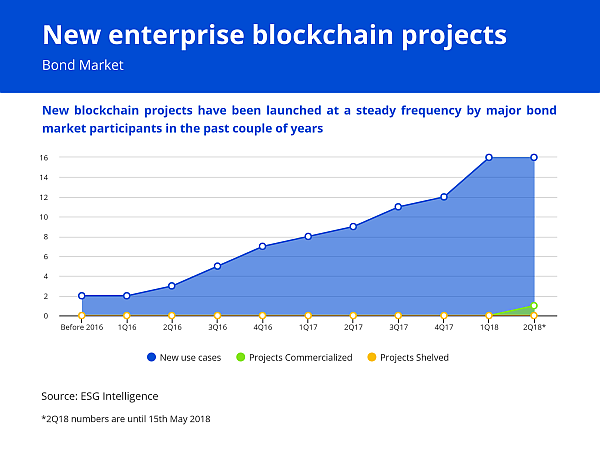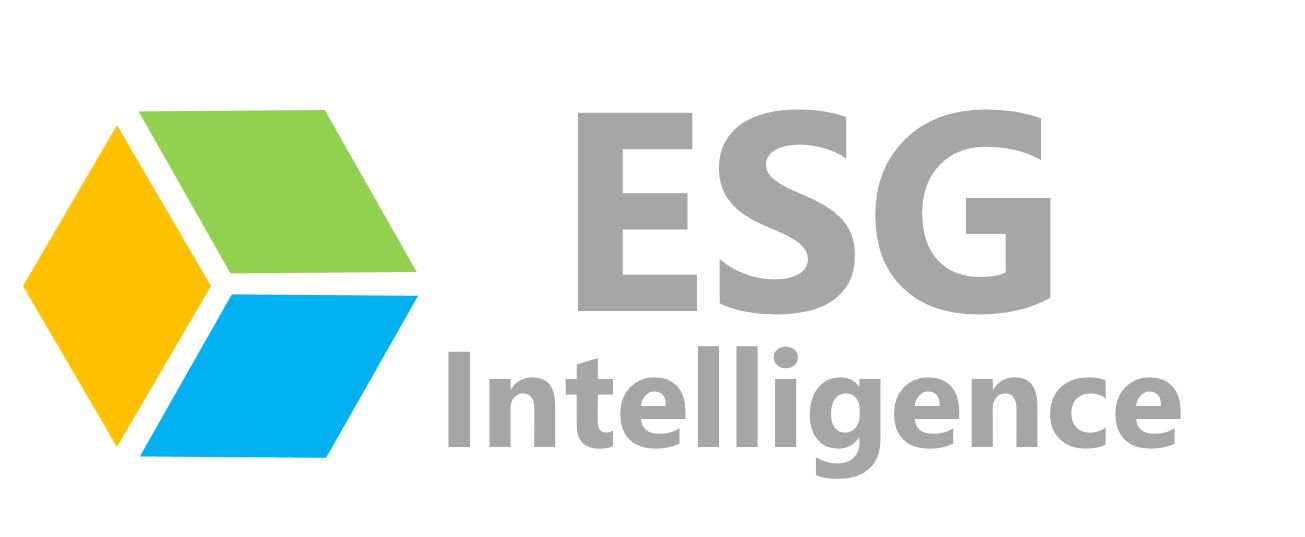Bond issuance and trading platforms built on blockchain can benefit several stakeholders in the bond market. The list of stakeholders includes enterprises, SMEs, investors, stock exchanges, regulators, treasuries, banks, insurance companies among others.
Some of the benefits of using blockchain based bond issuance platforms are:
- The process of bond issuance can be standardized and made more transparent
- Reduction in settlement time and associated risks
- The amount of paperwork and corresponding errors and corruption can be reduced
- More (smaller) issuers can access the bond markets due to reduced cost and time
- Better efficiency in the secondary trading market
- Better regulatory compliance and supervision
- Rating of bonds becomes more efficient and accurate
Several bond issuance and trading platforms have been tested successfully and are under development. The steady growth in the number of new projects initiated indicates that the excitement around these platforms is increasing. However, before these platforms become commercialized, they need to overcome a few challenges and need to be tested thoroughly which seems to be delaying the launch of these platforms. Also, bond markets are highly regulated and any commercial launch could require regulatory tweaking which is not the easiest and the fastest task. Please contact our research team to learn more about how and in what areas can blockchain disrupt the bond market ecosystem.

Here are some examples where market participants are using the blockchain to achieve above stated benefits:
- Securities division of BNP Paribas is working on a blockchain project that would enable retail investors to lend money to businesses using a blockchain platform. This platform will maintain and record details of mini-bonds issued, and will allow all pertinent stakeholders to transparently access this information. This will be immensely beneficial to small businesses, while potentially helping standardize bond management.
- In early 2017, the Commonwealth Bank of Australia issued a crypto-bond last year, using its capital markets blockchain platform. The bond was a working prototype, was not tradable and did not carry any debt obligation. This bond was created in digital form using smart contracts and could automatically pay coupons to the current holder when due. If commercialized, such a platform will eliminate the need of intermediaries, reduce costs, time and paperwork which further enhance transparency, and eliminates errors.
- SBI Securities (Japan) has collaborated with IBM to develop a blockchain based bond trading platform. This platform aims to streamline the entire cycle from registering a bond to its reimbursement, by automating operations with shared databases. It reduces the amount of paperwork and human effort involved in the process, while reducing the chances of errors. It also improves efficiency by making the process faster.
- Daimler AG and Landesbank in collaboration with Baden-Württemberg and 3 other German banks also conducted a pilot for issuing corporate bond using blockchain technology. The entire transaction was digitally carried out in parallel with the process that is required by regulatory authorities. This included various processes such as bond origination, distribution, allocation, execution of the loan agreement, and confirmation of repayment and interest payments. This increased the automation of financial transactions thus making them much faster and cost efficient by eliminating labor intensive manual steps.
About ESG Intelligence
ESG Intelligence enables corporations to embrace emerging technologies to improve their business and sustainability performance. We deliver research-driven insights in the areas of blockchain intelligence and risk management.
Our enterprise blockchain intelligence solutions have evolved after speaking to 100+ senior decision-makers at enterprises and leaders at blockchain technology companies, about how they want to use our intelligence. Our solutions can empower corporate and investment decision-makers to make intelligent and informed decisions, about blockchain use case identification, vendor selection, consortia identification, and at the same time allow you to prepare for challenges that make blockchain adoption difficult.
Our risk management solutions are aimed at identifying and mitigating supply chain risk for corporates. We conduct in-depth supplier risk assessments and monitor your critical supplier to uncover any supply chain disruption before it happens.
